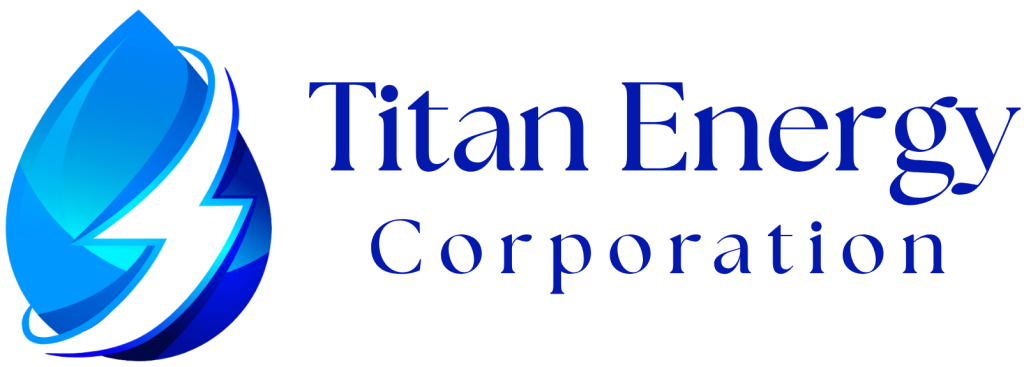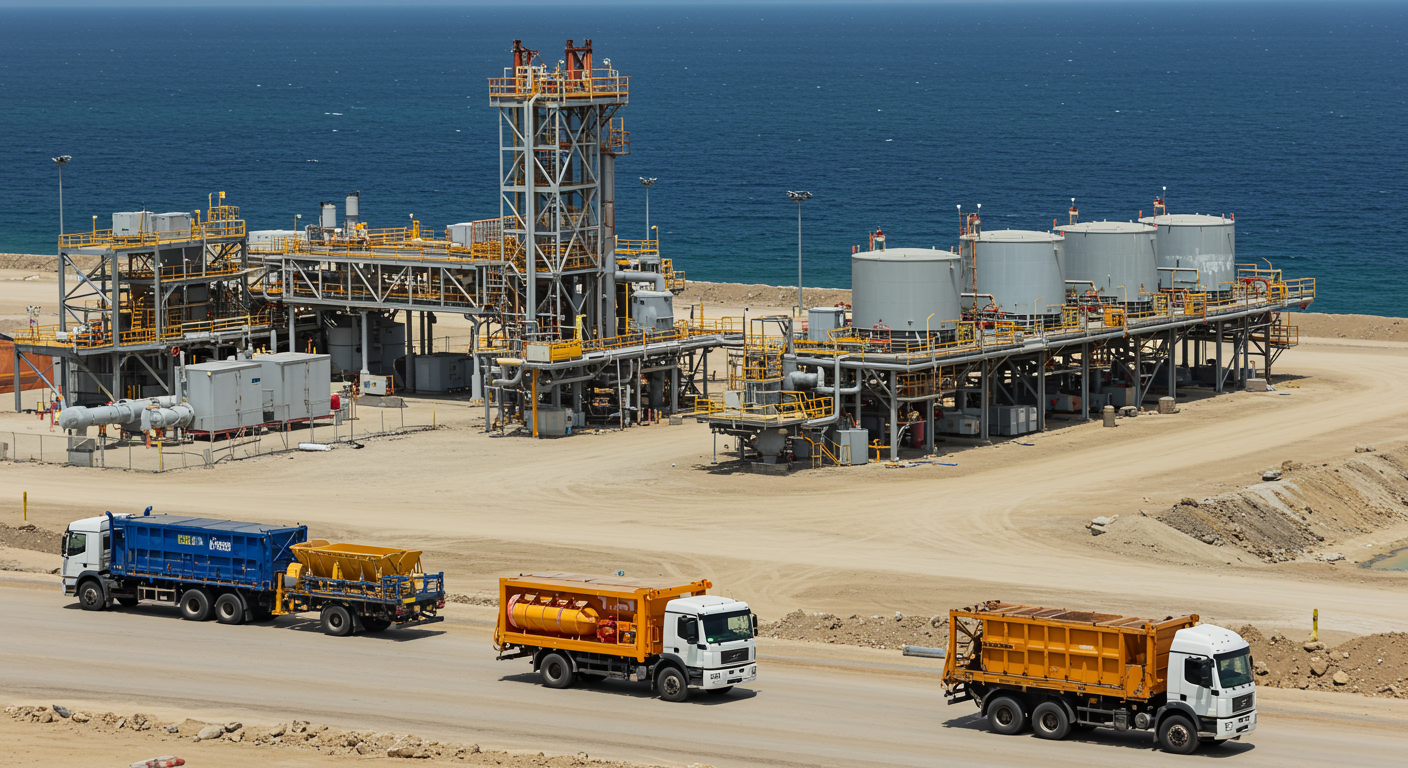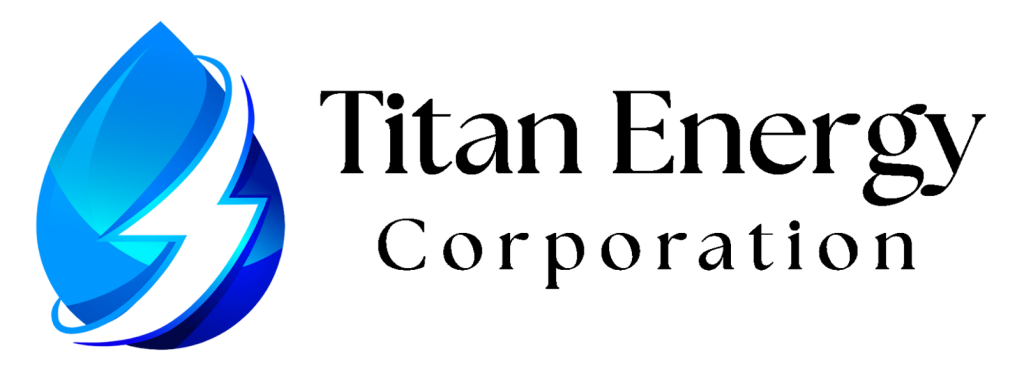Initial Processing & Treatment
Refining raw hydrocarbons with precision for seamless downstream operations
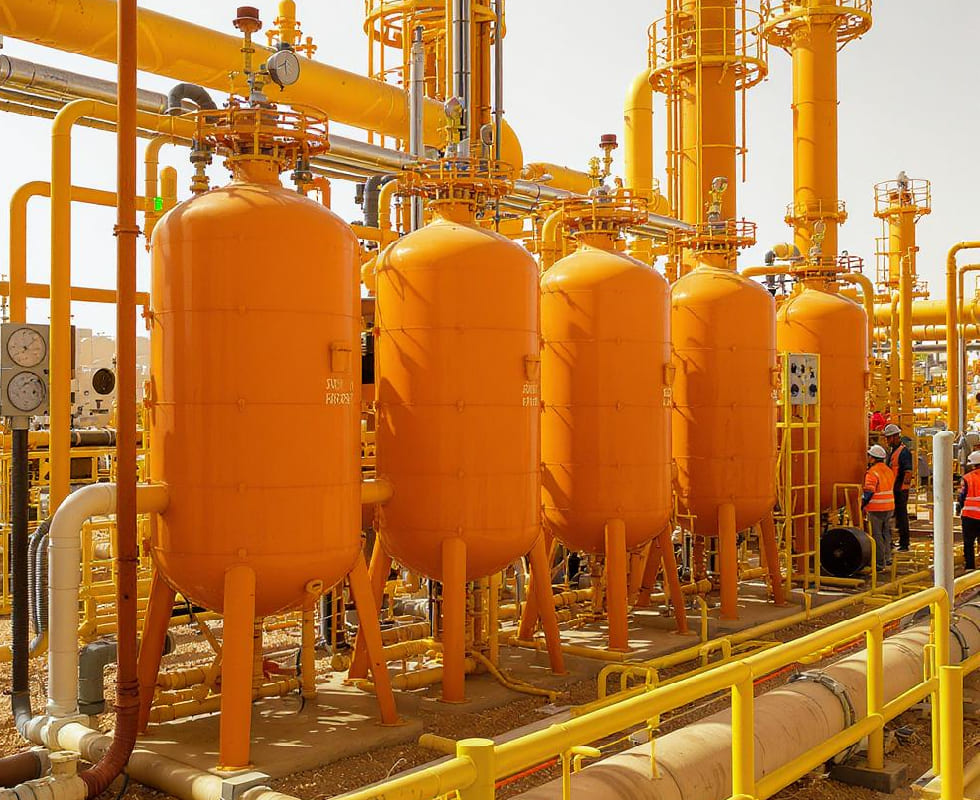
Initial Processing & Treatment
At TITAN Energy Solution, our initial processing and treatment operations begin immediately after hydrocarbons are extracted to ensure they are safe for transport, sale, or refining. Raw oil and gas from the well often contain water, gas, sand, and impurities like H₂S and CO₂. Our processes focus on separating oil, gas, and water, removing contaminants, and adjusting pressure and temperature for safe handling. Equipment such as three-phase separators and heater treaters are used to break emulsions, lower viscosity, and streamline output for downstream processing.
- Three-phase separation of oil, gas, and water
- Removal of impurities including H₂S, CO₂, and solids
- Use of heaters to break emulsions and reduce viscosity
- Pressure and temperature adjustments for safety and compliance
- Ensures readiness for transport, sale, or further refining
- Supports environmental and safety standards from the outset
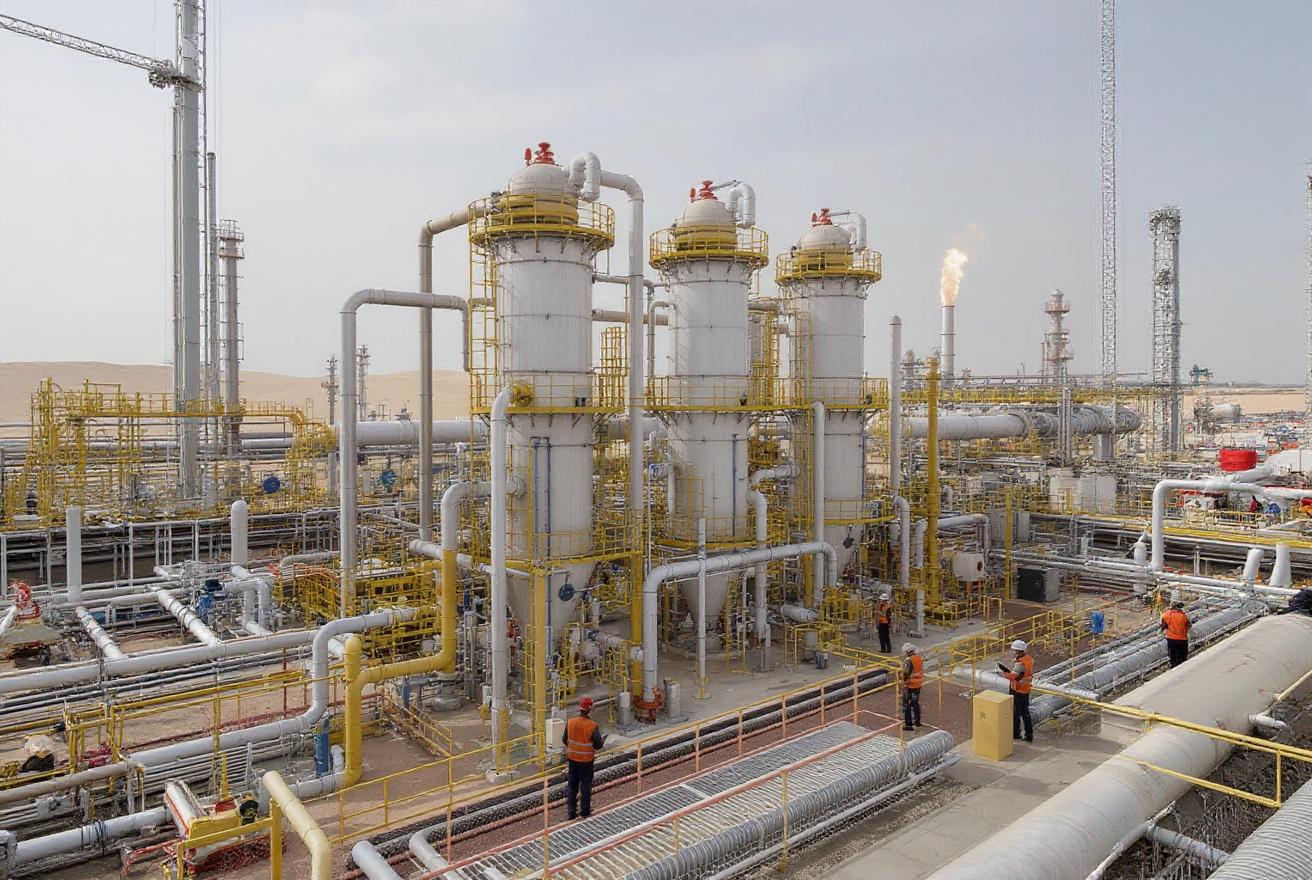
Dehydration & Contaminant Control
In early processing, dehydration and desalting prepare oil and gas for safe transport and refining. Oil is desalted using wash water or electric grids to remove salt and water that cause corrosion. Gas is dehydrated with glycol units or molecular sieves to prevent pipeline issues. Contaminants like H₂S and CO₂ are removed through sweetening, while filtration clears solids such as sand and rust.
- Gas dehydration removes water vapor to prevent hydrates.
- Sweetening eliminates H₂S and CO₂ to ensure safer gas processing.
- Filtration removes solid contaminants like sand, rust, and scale.
- Ensures pipeline integrity and efficient downstream processing.
- Oil desalting removes salts and water.
Why Choose Us
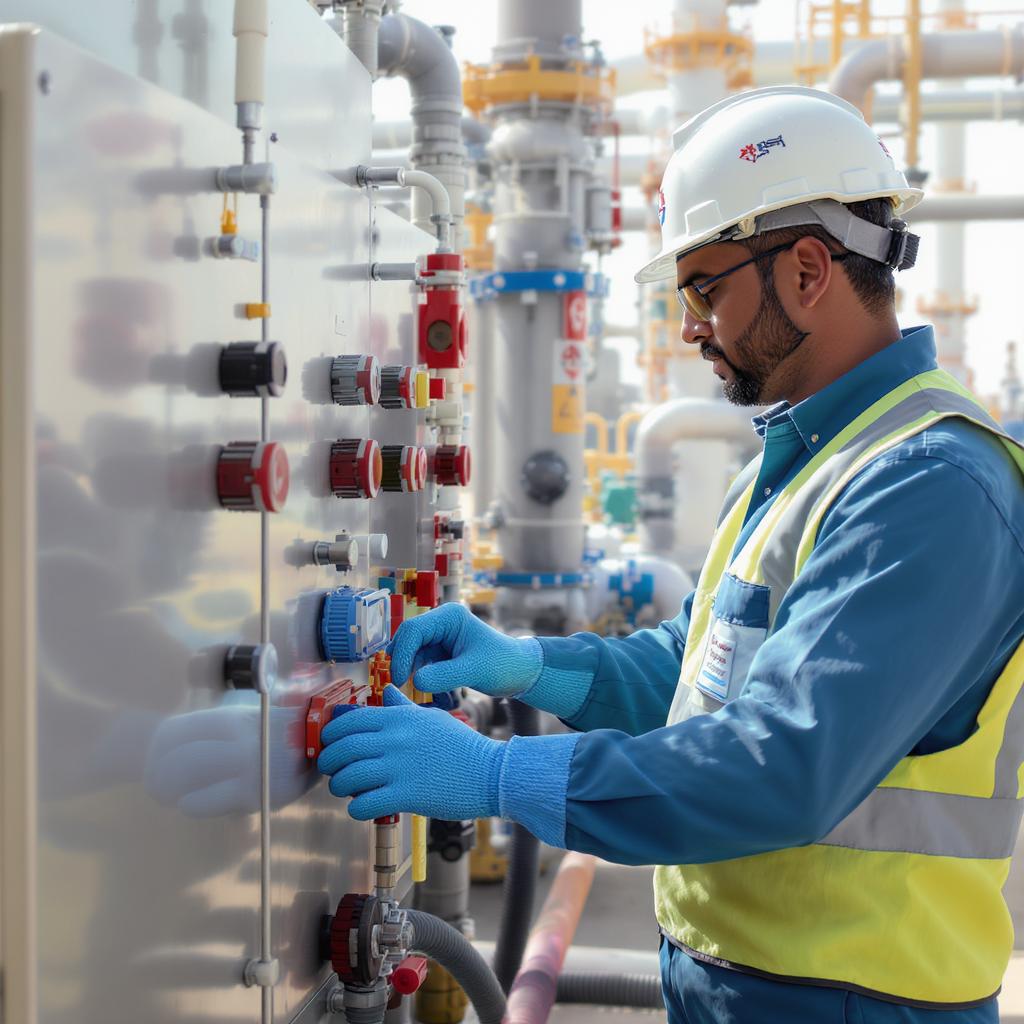
Expert Processing Solutions
Skilled in all key initial processing steps for optimal, efficient, and safe hydrocarbon handling with strict quality control.
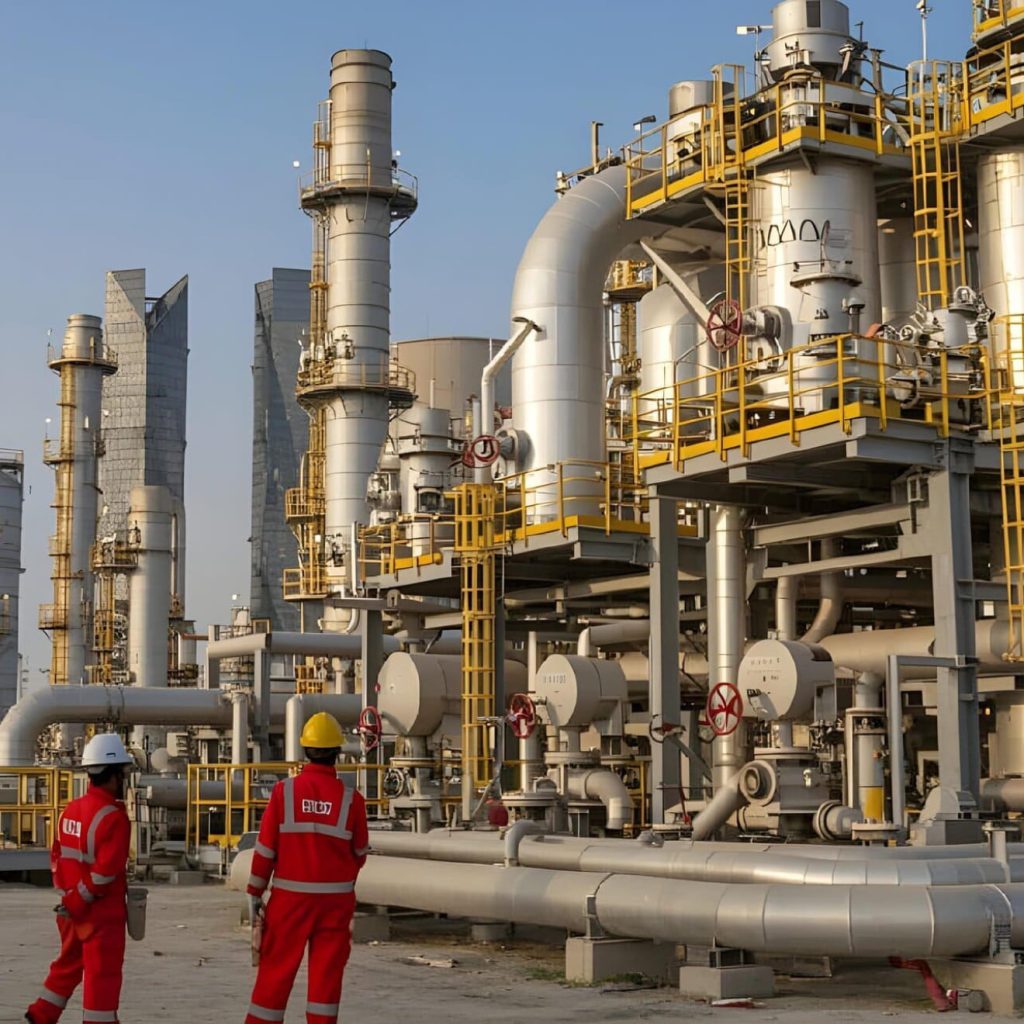
Modern Equipment Expertise
Use of modern separators, dehydrators, and control systems ensures operational efficiency, safety, and regulatory compliance.
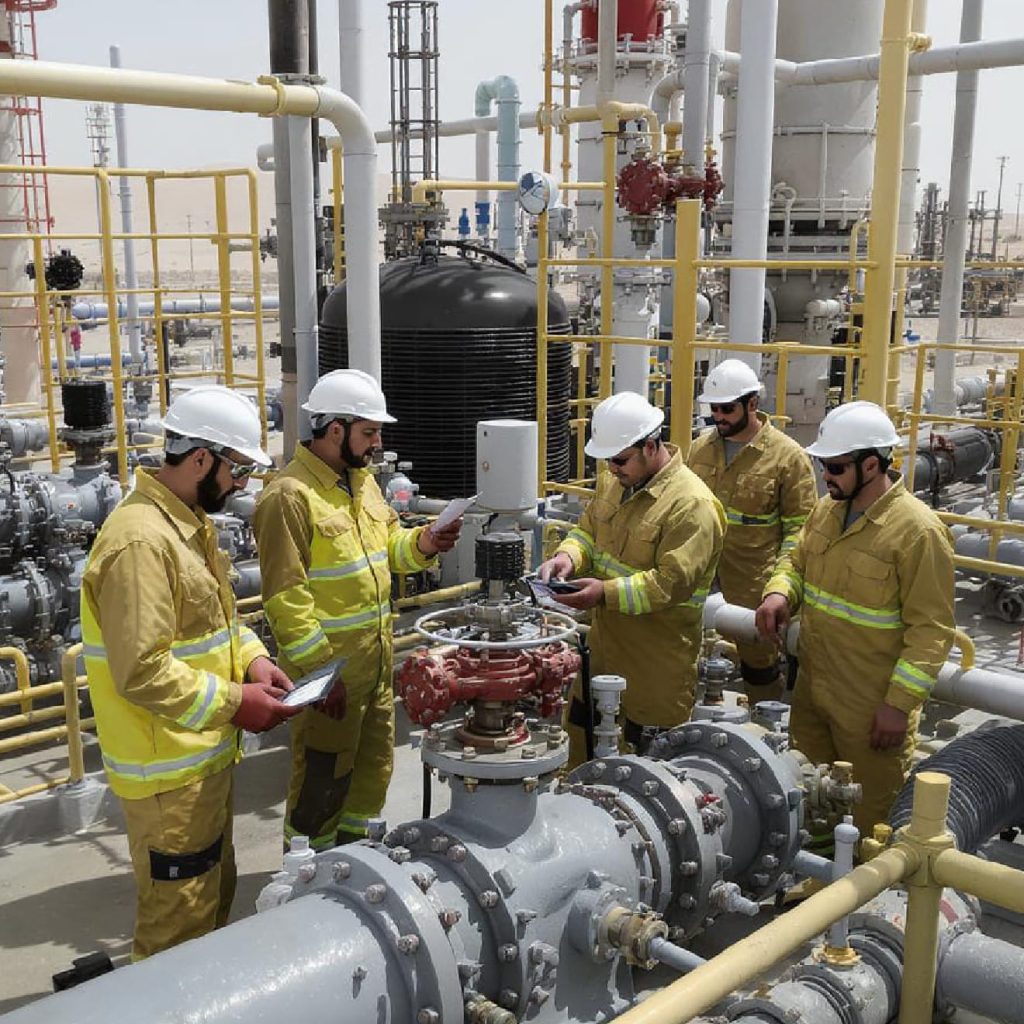
Rigorous Safety Compliance
Strict adherence to industry standards protects assets, people, and environment with rigorous protocols.
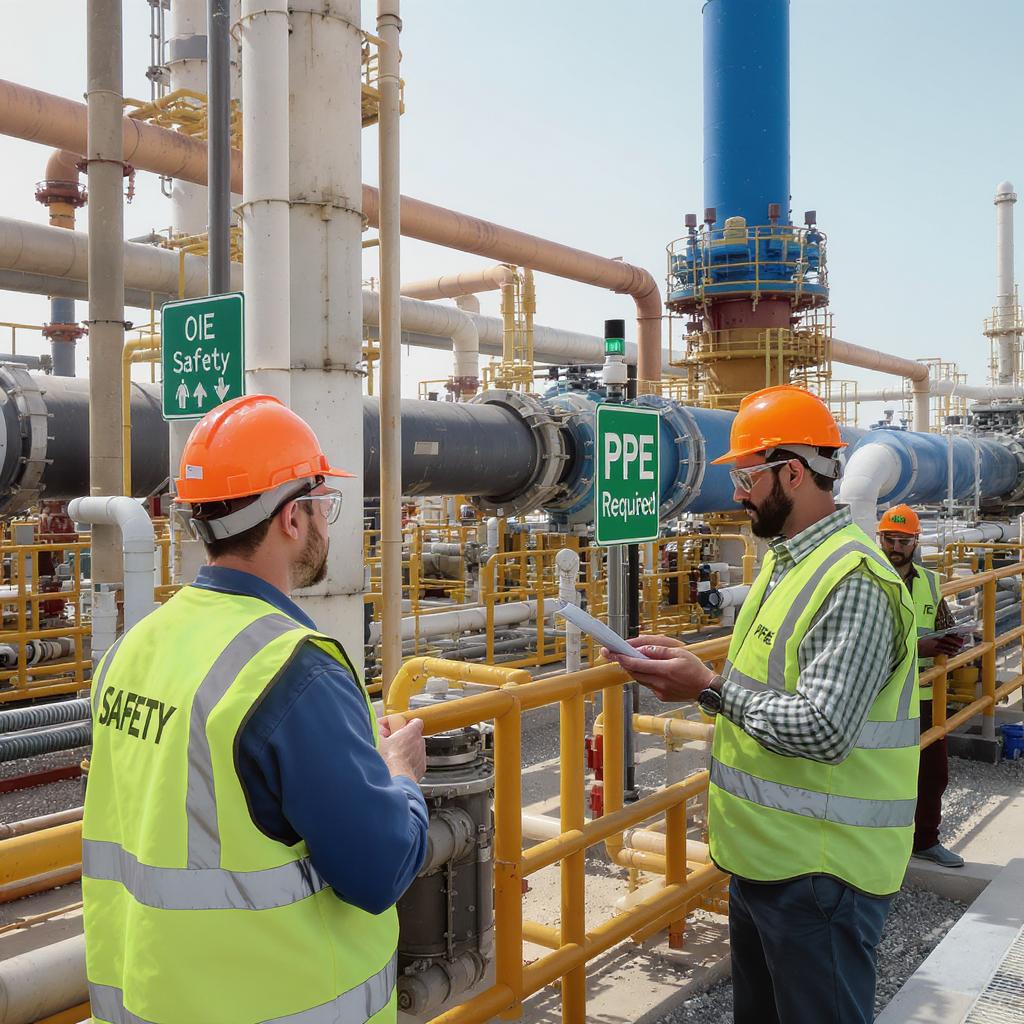
Exact metering & storage.
Reliable metering and secure storage support precise production management and seamless operational reporting.

Pressure, Flow & Storage Management
In initial processing, pressure and flow control ensure safety and efficiency. Choke valves regulate flow, separators and scrubbers maintain pressure, and flare systems burn excess gases. Temporary storage uses crude oil or gas tanks, while metering stations track production for reporting.
- Separators and scrubbers maintain safe operating pressures
- Flare systems burn off excess or dangerous gases
- Temporary storage in crude oil and gas tanks
- Metering stations track production for custody transfer and reporting
- Choke valves control well flow rates
- Continuous monitoring and automated controls optimize operations
